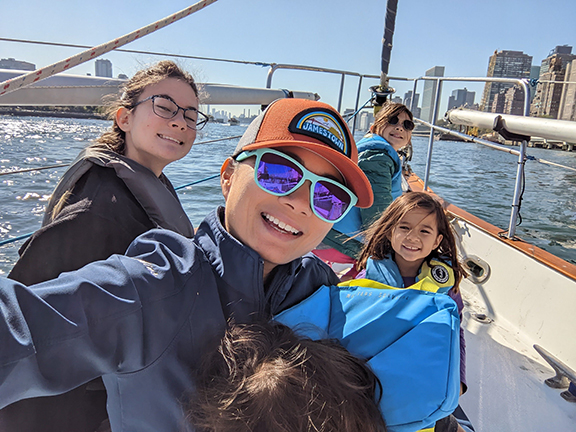Thinking of becoming a nurse anesthetist?
It’s a good idea—the profession’s been listed among U.S. News & World Report’s “best jobs” consistently since 2016 and it’s the #3 “best health care job” for 2020. Their median salary is $165,000, their unemployment rate is just .4 percent, and the Bureau of Labor Statistics projects 16.2 percent job growth for nurse anesthetists by 2026.
The best part? Johns Hopkins School of Nursing’s #1-ranked DNP program now has a nurse anesthesiology track.
Applications are now open, the deadline is November 1.
What is a Certified Registered Nurse Anesthetist (CRNA)?
A Certified Registered Nurse Anesthetist is an advanced practice registered nurse (APRN) who administers anesthesia and anesthesia-related services on health care teams with surgeons, dentists, podiatrists, physician anesthesiologists, and other qualified health care professionals. Notably, nurse anesthetists have been providing anesthesia care to patients in the U.S. for over 150 years.
How do you become a CRNA?
- Become a registered nurse (RN) with bachelor’s or master’s degree in nursing or another related field.
- At least one year of experience in an intensive care unit (ICU).
- Earn your DNP in nurse anesthesiology from an accredited program.
- Pass the National Certification Examination administered by the National Board of Certification and Recertification for Nurse Anesthetists.
What are the educational requirements to become a CRNA?
In 2025, nurse anesthetists will need a doctorate in nurse anesthesiology (DNP) to enter the field. To be eligible for the DNP Nurse Anesthesiology program at the Johns Hopkins School of Nursing, you’ll need:
- A bachelor’s or master’s degree in nursing.
- A current unencumbered RN license from the state of Maryland.
- Preferably two, but at least one year of experience in an ICU. Trauma ICU, cardiovascular ICU, and/or surgical ICU experience is preferred.
- Experience observing a CRNA. If possible, spend an entire shift observing the CRNA to get an idea of what a typical day may be like.
* The Anesthesia and Critical Care Medicine Department at Johns Hopkins Hospital has a mentorship program for nurses who are interested in becoming a CRNA. Request an opportunity to shadow a CRNA at [email protected]
What are the licensing and certification requirements to become a CRNA?
Students who complete Nurse Anesthesiology programs must pass the certification exam from the National Board of Certification and Recertification for Nurse Anesthetists (NBCRNA). Certification to be a CRNA requires a passing score on the national certification exam administered by the NBCRNA. All CRNAs must have a RN license and where applicable, advanced practice registered nurse (APRN) status depending on the state.
DNP Nurse Anesthesiology Track at the Johns Hopkins School of Nursing
Learn more:
- Nurse Anesthetist Overview, U.S. News & World Report
- Certified Registered Nurse Anesthetists Fact Sheet, American Association of Nurse Anesthetists

ABOUT THE AUTHOR: SYDNEE LOGAN
Sydnee Logan is the Social Media and Digital Content Coordinator for Johns Hopkins School of Nursing. She shares what’s going on here with the world.

 The Learning Collaborative: ‘I Think I Can, I Think I Can …’
The Learning Collaborative: ‘I Think I Can, I Think I Can …’ Sea Change for DNP Student
Sea Change for DNP Student All Together Now!
All Together Now! Team Captain
Team Captain Sky’s The Limit
Sky’s The Limit







